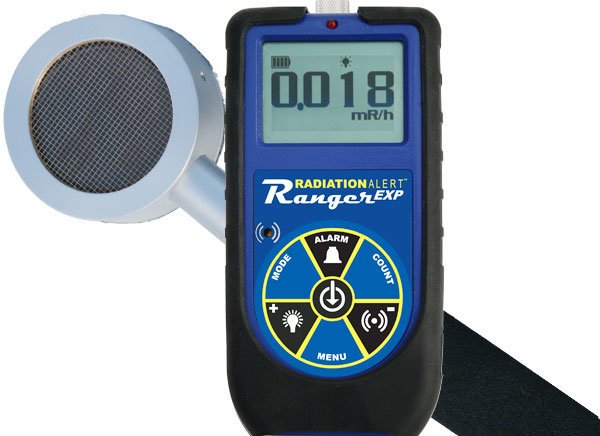Articles
Radiation Response Kits: What You Need in an Emergency
Posted on June 13, 2023

Just saying the words radiation or radiation detection can elicit a worried response since its presence and potential for harm is indeed a concerning part of its reputation. This emission and propagation of energy in the form of waves or particles can come from various sources, both natural and manufactured. Radiation is part of our daily lives- probably more than most people know. General thinking may immediately relate radiation to nuclear power generation and WMD (Weapons of Mass Destruction), diagnostic imaging, or cancer treatment, but there are numerous everyday applications, including cell phones and Wi-Fi.
Radiation can have both beneficial and harmful effects on living organisms, depending on the type, dose, duration of exposure, and individual sensitivity. To protect individuals from harmful effects, radiation detection safety measures such as shielding, time limitations, and distance are implemented across most industries. While regulatory agencies set exposure limits and guidelines to ensure the safe use of radiation in medical, occupational, industrial, research, and environmental settings, there can be risks; therefore, anyone who may come in contact with radiation must be protected.
Preparation for an Emergency: Radiation Response Kits
Businesses that work with or around radiation-emitting or radioactive materials need to ensure the safety of their employees. Radiation detection devices and protocols can help monitor radiation levels in the workplace, ensuring that workers are not exposed to harmful radiation beyond acceptable limits. This promotes a safe working environment and reduces contamination risks and long-term health effects.
In the event of a radiation emergency, it is important to have a radiation response kit assembled, accessible and include radiation alert products to protect any person who may be at risk or may have been exposed. While the specific contents of a radiation response kit may vary depending on the circumstances, industry, and location, here are some general radiation alert products that can be critical to include.
Radiation Detector. A portable radiation detector or area radiation monitor, such as a Geiger-Muller (GM) counter, scintillation detector, or dosimeter, is essential for detecting and measuring radiation levels. With their ability to offer excellent sensitivity to NORM (Naturally Occurring Radioactive Material) and low levels of alpha, beta, gamma, and x-rays, these devices can help a business assess the extent of radiation exposure and identify areas of high radiation.
Protective Clothing. Include disposable gloves, shoe covers, and disposable gowns or coveralls to reduce the risk of contamination from radioactive materials. These items must be made of a material that provides a barrier against radiation.
Respiratory Protection. Depending on the severity of the radiation emergency, you may need to protect your respiratory system from radioactive particles. N95 or higher-related respirators can help filter out some airborne radioactive contaminants.
Personal Protective Equipment (PPE). Including safety goggles and face shields to protect eyes from radiation exposure must be available for all employees.
Radioactive Decontamination Supplies. In case of contamination, businesses should have available decontamination supplies at the ready. These items may include disposable towels, sponges, soap, and water, and their use should follow proper decontamination procedures recommended by authorities.
Emergency Information and Contacts. Maintaining a comprehensive list of emergency contact numbers, including local authorities, radiation safety personnel, and healthcare providers, is vital. Include any relevant emergency response plans or guidelines provided by your local government.
Emergency Food and Water. Keep a supply of non-perishable food and bottled water that can sustain a person for at least 72 hours. The food and water must be stored in a radiation-free area.
First Aid Kit. No matter the industry, every business should have fully stocked first aid kits, but this safety item becomes even more critical if radiation detection reveals contamination and exposure. There should be essential medical supplies like adhesive bandages, antiseptic solutions or creams, scissors, tweezers, and any necessary over the counter or prescription medications.
Communication Devices. Keep battery-powered radio or portable communication devices in your kit to stay informed about the situation and receive updates or instructions from authorities.
Flashlights and Spare Batteries. In case of power outages, having reliable flashlights and a supply of batteries is crucial for safety and visibility.
Overall, having radiation alert products and radiation response kits in a business or industrial setting creates an environment where compliance, emergency preparedness, and safety are prioritized. Remember that it is essential to be ready for any workplace emergency, but it is especially important for businesses and organizations with radiation contact. It demonstrates a commitment to radiation safety and allows for proactive measures to mitigate risks associated with contamination and exposure.
It is important to have safety protocols and equipment in place before a radiation emergency event occurs. Following the necessary guidelines and instructions and being equipped with the proper radiation detection devices are essential for navigating an unexpected situation. What range of radiation detection preparedness has your company reached? Do your radiation safety measures meet the standards for workplace standards? Look no further than S.E. International for solutions to all radiation detection questions. Contact our experts today to feel confident your workplace is safe and free from radiation contamination.
Leave a Reply
Your email address will not be published. Required fields are marked *